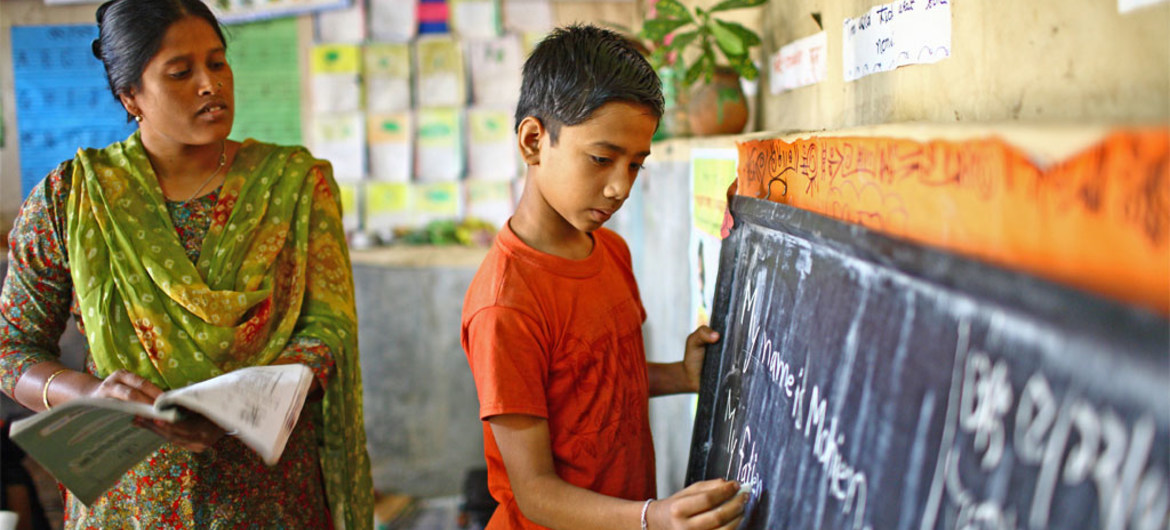
Aligned with the Commission’s 59th session Priority Theme, the International Movement ATD Fourth World hosted a virtual side-event, Behind the Screen: Grassroots Experiences Accessing Social Services and Education in a Digital World, specifically looking at the experiences of individuals and families living in poverty.
Moderated by academic and author Virginia Eubanks, the diverse panel brought together the voices of activists with direct experience of poverty Esther Rodriquez and Tammy Mayes, academic Christiaan van Veen, and a Member State perspective from Mr. Joongil Shin, of the Permanent Mission of the Republic of Korea to the United Nations.
After an introduction of Virginia Eubanks’ academic experiences at the intersection of digital technology and social well-being, Esther began the afternoon with an insightful video presentation of her experiences supporting the online learning of her three grandchildren. Esther shared the obstacles the children faced, lacking personalized attention in the online classroom in addition to technical difficulties and cost barriers to digital devices and internet access. In spite of these challenges, Esther remained steadfast in her belief that the strength of family ties would help them through. Additionally, she continues to proudly support advocacy in her community. Tammy Mayes, an activist from ATD UK, followed with a critical message about the inhumane treatment families endure with the online UK Family Court System—instated due to Covid-19 measures. As one of the PFAN (Parent Families and Allies Network) parent activists carrying out research, Tammy shared some of the families’ stories. She cited how many families felt their online court hearings were unjust, lacking the personal and humane connection essential to such intimate proceedings.
Echoing the sentiments of Esther and Tammy, Christiaan van Veen, Director of the Digital Welfare State and Human Rights Project at New York University (NYU) noted the confines of much existing digital rights work, which often focuses on the impacts of these technologies on the middle class. The effects of digitizing the welfare state on individuals in poverty are overlooked.
Following a short video-testimony about digital voting in the Democratic Republic of Congo, Mr. Joongil Shin presented South Korea’s achievements in bridging the digital divide, accessibility, and digital literacy, through decades of holistic citizen-focused campaigns.
The event closed with a vibrant chat discussion and Q&A from the attendees - many agreeing that the narrative on 'experts' needed to be rewritten. On the question of how to build humane systems - whether digital or in-person - that are accessible, humanizing and fair, the final words went to Esther who highlighted the importance of sharing information with each other and between organizations and to Tammy, who powerfully emphasized that parent advocacy is the way forward: ‘I will always fight for my children, I have done it for twenty years and I will carry on doing it - you cannot keep treating families the way they are treated. It is inhumane, it is against human rights and I will do everything I can to give parents the power to fight against that.’
Event picture:

Online interactive report (with tweets and videos)
 Welcome to the United Nations
Welcome to the United Nations